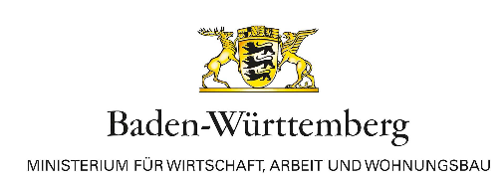Veröffentlichungen
| [1] | Fleischer, J.; Lanza, G. & Schulze, V. (2019), „Auf dem Weg zur Elektromobilität ? Wettbewerbsfaktor Produktionstechnik“. Auf dem Weg zur Elektromobilität ? Wettbewerbsfaktor Produktionstechnik, Hrsg. Fleischer, J.; Lanza, G.; Schulze, V. & , ., Shaker-Verlag, S. 1-132. 10.2370/9783844069532 Abstract Die Automobilindustrie steckt in einem Transformationsprozess ungeahnten Ausmaßes und Ausgangs. Ob durch striktere europäische Abgasgrenzwerte, den Zwang lokaler Emissionsfreiheit oder den Druck des chinesischen Marktes beim Kampf um eine neue Vor-herrschaftsrolle - die Gründe deutscher Automobilisten zur Elektrifizierung sind vielschichtig und die Folgen kaum abschätzbar. Die Frage, ob neue Antriebstechnologien in den Markt eingeführt werden, stellt sich mittlerweile kein Automobilhersteller mehr, stattdessen verbleibt die Frage nach dem ?wie?. Mit der diesjährigen wbk Herbsttagung ?Auf dem Weg zur Elektromobilität ? Wettbewerbsfaktor Produktionstechnik? wollen wir die vorhandenen Chancen im Bereich der Produktionstechnik für die Elektromobilität aufzeigen und einen Beitrag dazu leisten, dass diese auch genutzt werden. Hochkarätige Impulsvorträge aus Industrie und Forschung schaffen die Diskussionsbasis für einen Informationsaustausch zur Elektromobilität. Die wbk-Herbsttagung bietet dabei eine Plattform für den Dialog zwischen Politik, Anwendern, Produzenten, Anlagenbauern sowie dem wbk als Forschungspartner vor Ort. |
|
| [2] | Hausmann, L.; Wirth, F.; Franck, C.; Förderer, M.; Karrer, M.; Hofmann, J. & Fleischer, J. (2019), „Ausbildungsfabrik Statorfertigung“, ZWF Zeitschrift für wirtschaftlichen Fabrikbetrieb, Band 10, S. 621-626. 10.3139/104.112166 Abstract The transformation process towards electric mobility results in new requirements for product development and production technology, which require the appropriate qualification of employees. In order to enable holistic further training, the wbk Institute for Production Engineering at KIT develops high-quality training concepts for the production of stators of electric traction drives by hairpin technology based on vocational pedagogical methods and integrates them into the overall concept of the training factory stator production. |
|
| [3] | Hausmann, L.; Wirth, F.; Oliveira Flammer, M.; Hofmann, J. & Fleischer, J. (2020), „Aligning vocational training to the electromobile transformation by establishing the “Training Factory Stator Production”“. Procedia Manufacturing 45, Elsevier, S. 448-453. 10.1016/j.promfg.2020.04.051 Abstract In addition to the current challenges in production technology due to the shift from conventional powertrains towards electrified drive technologies, the disruptive transformation of mobility confronts OEMs and suppliers with major personnel challenges, which include new requirement profiles for prospective skilled workers. In order to meet the personnel requirements of industry and ensure the high quality of vocational training in Germany nonetheless, the current training concepts must be strengthened by the targeted integration of specific contents and be geared holistically to the needs of new occupational profiles. This paper presents a methodological approach for deriving current deficits in vocational education and training through the systematic analysis of framework curricula and the targeted survey of teachers working at German vocational schools as well as the derived training program to support the qualification of trainees. In order to obtain a training concept of high didactic quality, the approach is based on pedagogical methods to provide the best possible support and to convey the learning objectives related to professional, social, methodical, and personal skills. With the newly conceived “Training Factory Stator Production” at the wbk Institute of Production Science of the Karlsruhe Institute of Technology, a program for the training and further education of trainees, skilled employees and engineers will be introduced using the example of producing stators with hairpin technology, to support especially small and medium-sized companies in the personnel transformation process. |

